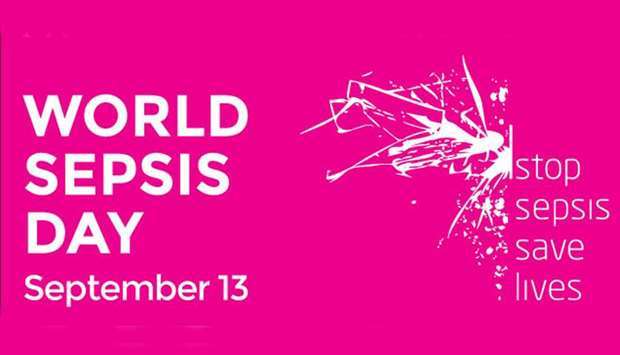Procalcitonin (PCT) Is A Powerful Tool for Diagnosing Sepsis
September 13, 2021 is the 10th World Sepsis Day[1]. In order to promote the awareness and attention of the medical profession and the public to sepsis, the World Sepsis Alliance has been holding September 13 every year as the "World Sepsis Day" since 2012 to carry out public welfare publicity activities. The organization is interested in promoting the prevention and treatment of sepsis, combined with world experts and resources, hoping to reduce the mortality rate of patients and improve the prognosis.
Even with the advancement of modern medicine, including development in vaccines, antibiotics, and intensive care, sepsis is still one of the leading causes of death in the world. In the 2018 Hospital Toolkit for Adult Sepsis Surveillance[2], the role of the biological indicator procalcitonin (PCT) in diagnosis and treatment monitoring is particularly emphasized. If the diagnosis and treatment are appropriate in the first hour of symptoms, the survival rate is as high as 80%, but if the diagnosis and treatment are delayed until the sixth hour, the survival rate is only 30%[3]. Procalcitonin is a useful marker for diagnosing sepsis in critically ill patients. It can differentiate effectively between sepsis and systemic inflammatory response syndrome of non infectious origin. However, it cannot be recommended as a single definitive test for the diagnosis of sepsis, but must be interpreted in conjunction with information from a detailed medical history, physical examination, and microbiological evaluation (if available). In addition, it is recommended to continue reassessment during the course of the disease[4].

References
[1] World sepsis day organization. http://www.world-sepsis-day.org
[2] Clinical Information | Sepsis | CDC https://www.cdc.gov/sepsis/clinicaltools/index.html
[3] Gao F, Melody T, Daniels D F, et al. The impact of compliance with 6-hour and 24-hour sepsis bundles on hospital mortality in patients with severe sepsis: a prospective observational study[J]. Critical care, 2005, 9(6): 1-7.
[4] Wacker C, Prkno A, Brunkhorst F M, et al. Procalcitonin as a diagnostic marker for sepsis: a systematic review and meta-analysis[J]. The Lancet infectious diseases, 2013, 13(5): 426-435.
Attachments:
MORE NEWS
n November 18, 2025, YHLO’s 2025 Global Core Distributors Conference was successfully held in Düsseldorf, Germany. Under the theme “Academia-Driven, Shared Value,” the meeting brought together representatives from more than 30 core distributors worldwide. YHLO’s founder, Mr. Deming Hu, and Chairman, Mr. Kunhui Hu, led the company’s executive team to attend and discuss strategic development with partners.
2025-11-20
YHLO Secures Approval for the World’s First sCD146 CLIA Assay
YHLO has obtained approval from the Guangdong Medical Products Administration for its soluble CD146 (sCD146) CLIA assay, marking a major milestone in central nervous system (CNS) disease diagnostics. YHLO is now the first company worldwide to offer an sCD146 test for cerebrospinal fluid, bringing its total CLIA assay portfolio in China to 173.
2025-11-18

Add: Building 1, YHLO Biopark, Baolong 2nd Road, Baolong Subdistrict, Longgang District, 518116 Shenzhen, P.R.China







